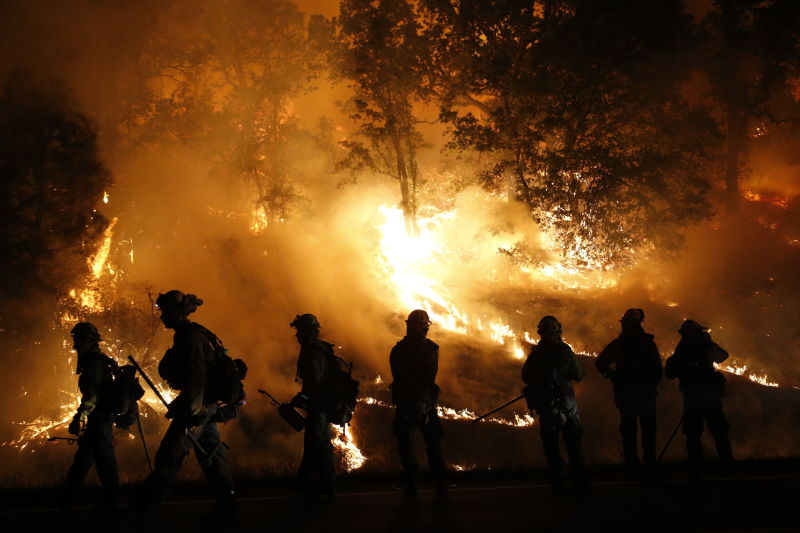The ongoing drought, combined with slower but significant shifts brought about by climate change, is changing the way California's largest fire protection agency does business, according to state officials.
Fire season isn't limited to the summer and fall anymore -- wildfires have become a year-round threat that require year-round resources, said Cal Fire Director Ken Pimlott.
"It's subtle -- yet you can see changes in weather patterns and vegetation that is leading to conditions that are more conductive to wildland fires that you see in what you would call the nontraditional months,” he said. “That means we have had to look at how we staff and prepare and respond to those conditions during the winter months and other times of the year.”
That includes stationing 25 fully staffed fire engines year-round in Northern California, an area of the state that fire officials didn't use to worry about come winter, Pimlott said.
Most of the money for fighting these unexpectedly large fires comes from an emergency fund that lives in the Cal Fire budget, but for nine of the past 10 years the governor has had to add tens of millions of dollars to that “e-fund” when costs ran over.
